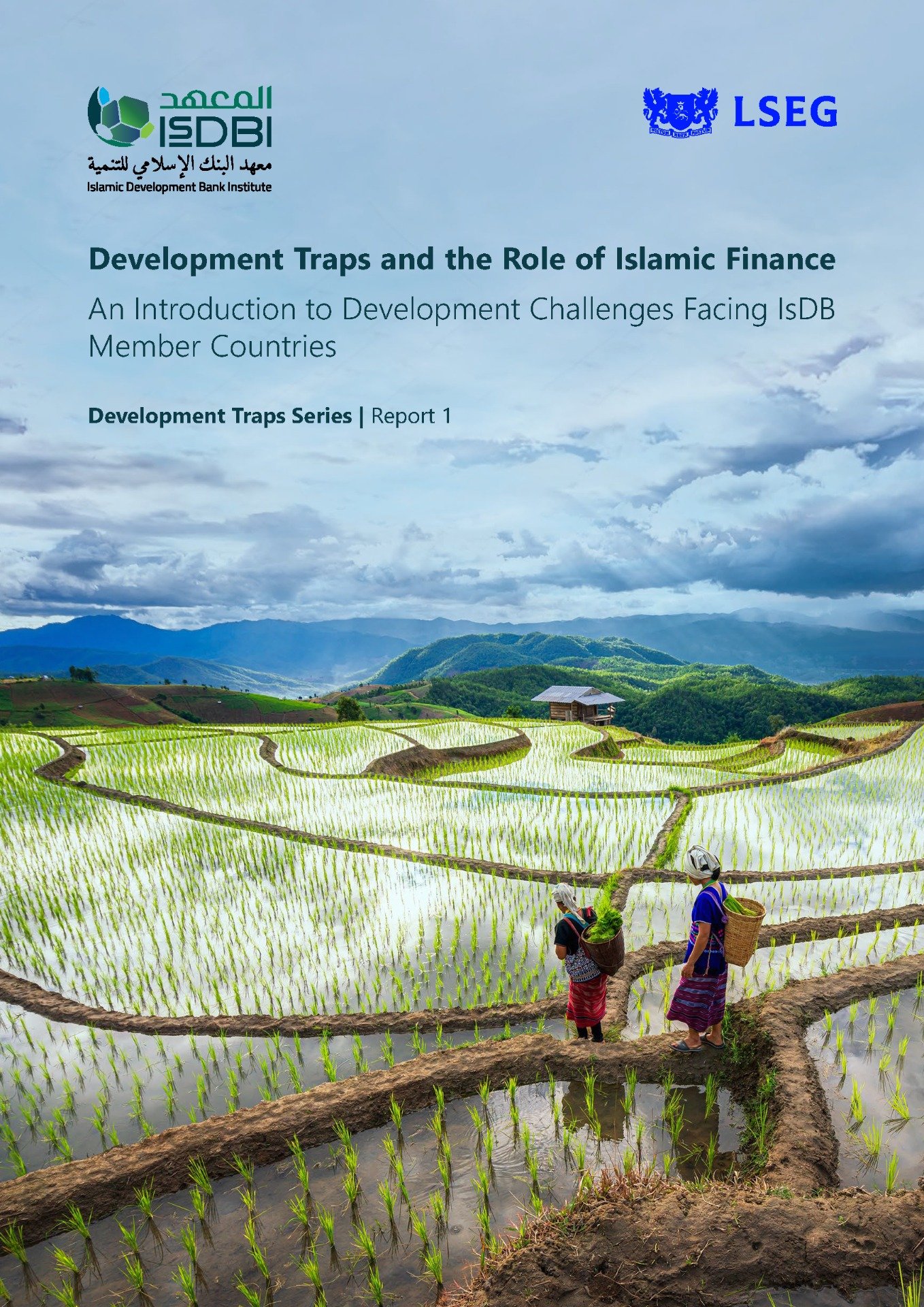IsDB Institute and LSEG launch landmark report on development traps and Islamic finance
MANAMA, Bahrain — The Islamic Development Bank Institute has partnered with the London Stock Exchange Group to launch a landmark publication examining development challenges and the role of Islamic finance in addressing them. The release took place during the 20th AAOIFI-IsDB Annual Islamic Banking and Finance Conference held in Manama.
The report, titled “Development Traps and the Role of Islamic Finance,” marks the first volume of the Development Traps Series and outlines five structural barriers affecting IsDB member states: the Middle-Income Trap, Natural Resources Trap, SMEs and MSMEs Trap, Debt Trap, and Technology Trap. It presents a data-driven framework backed by insights from institutions including the World Bank, IMF, UNDP, WIPO, OPEC, and ILO.

Islamic finance tools positioned for structural transformation
The study emphasizes how Sharīʿah-compliant instruments such as sukūk, waqf, muḍārabah, and zakāt can support economic resilience and sustainable progress. It integrates global development data with Islamic finance mechanisms aimed at inclusive growth and risk-sharing.
During the launch, IsDB Institute Acting Director General Dr. Sami Al-Suwailem highlighted the publication as a strategic resource for policymakers. He called the report “an important milestone” that offers early warning insights to help countries avoid long-term stagnation.
Expert insights and future volumes in the development series
The report includes contributions from global economic leaders such as ADB Institute Dean Dr. Bambang Brodjonegoro and UN Special Envoy Dr. Mahmoud Mohieldin. Mustafa Adil, Head of Islamic Finance at LSEG, noted the report’s significance in harnessing data and financial innovation to tackle economic challenges.
The publication will be followed by five thematic editions, with the next focused on the Middle-Income Trap and pathways to diversification, human-capital progress, and productivity growth rooted in Islamic finance principles.



